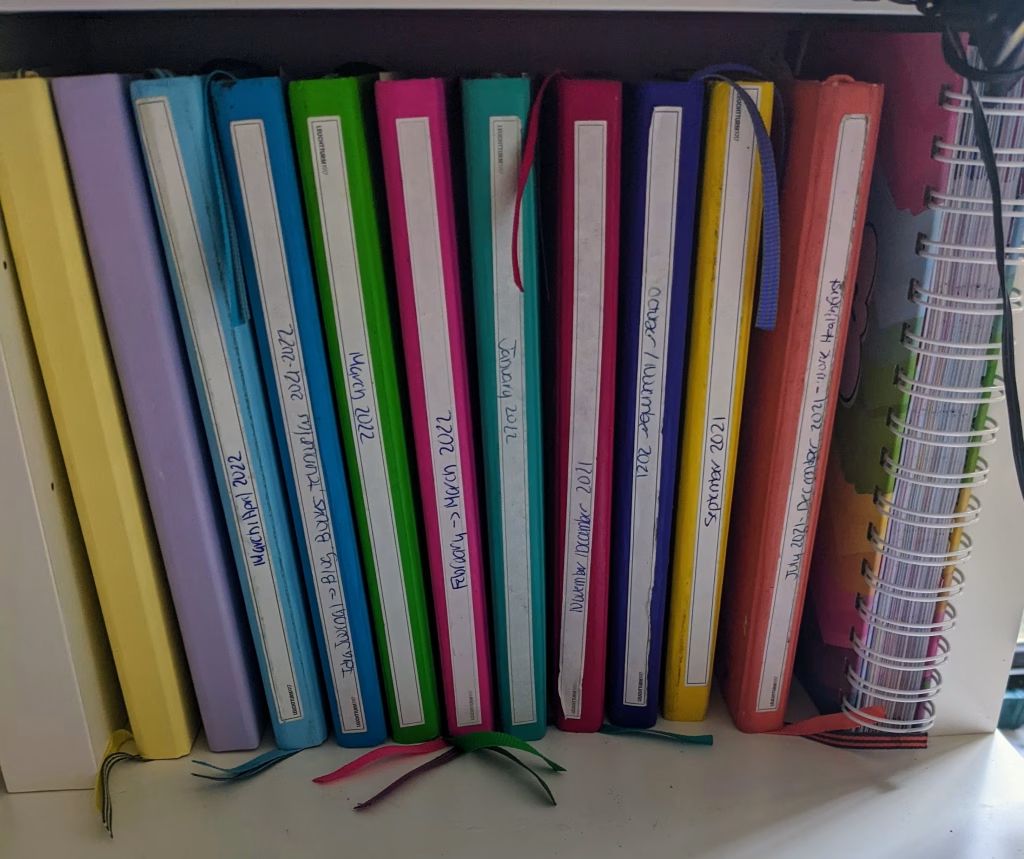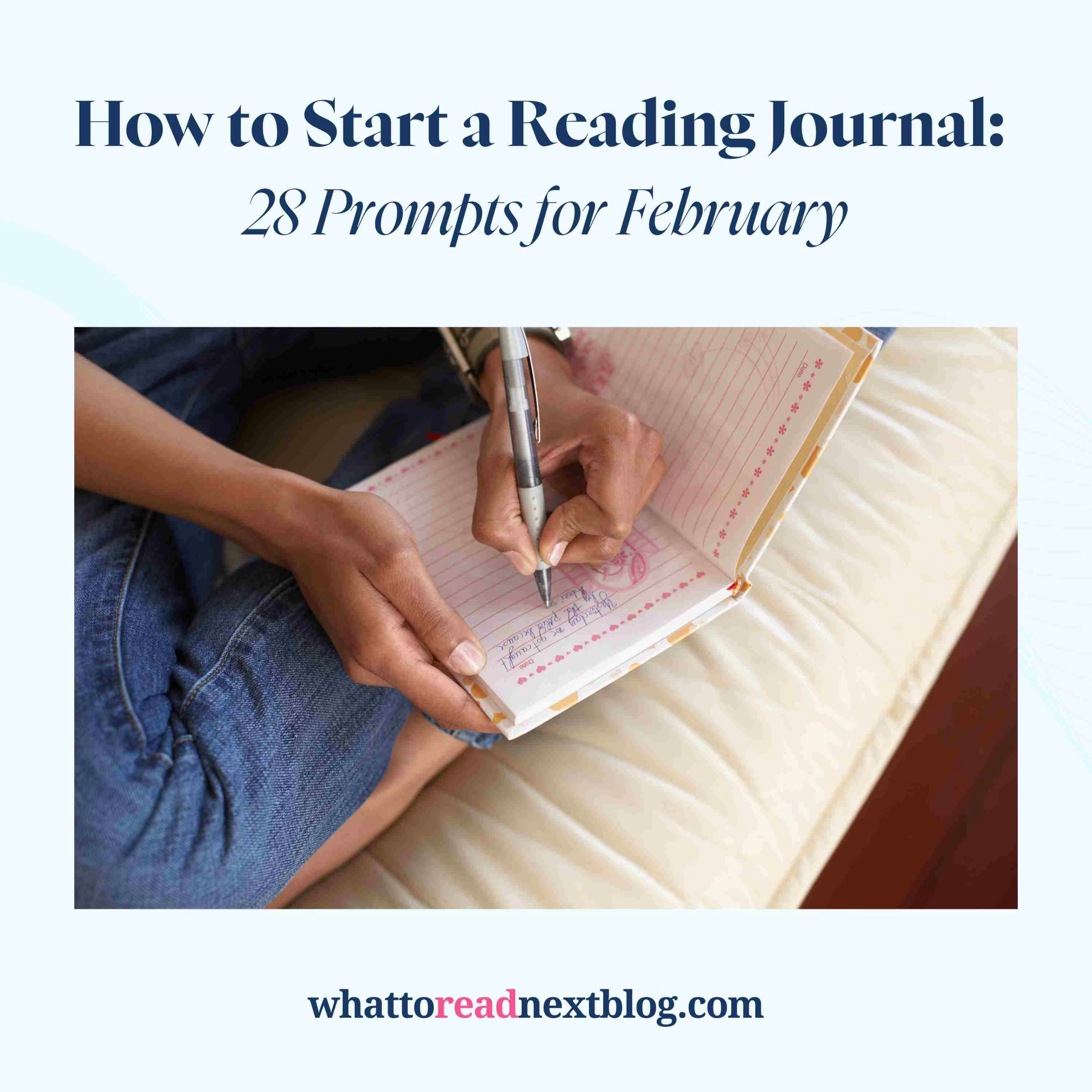Your Ultimate Guide to February 2025 Reading Journals: Prompts and Tips

Disclosure: We are part of the Amazon Affiliate/LTK Creator programs. If you purchase a book, we will receive a small commission at no cost to you. This post may contain links to buy books, and you can read our affiliate disclosure here.
Looking to deepen your connection to your reading life? Journaling might be the key. Whether you’re reflecting on a book that moved you, exploring your favorite literary themes, or simply savoring the cozy vibes of winter, a reading journal is the perfect companion. In this post, we’ll explore how journaling can transform your reading experience, how to get started, and provide 28 prompts to inspire your February journaling practice.
Why Journaling Can Transform Your Reading Life
A reading journal is more than just a log of the books you’ve read. It’s a space to process your thoughts, reflect on your emotions, and deepen your connection with the stories you love. Here are a few ways it can help:
- Enhances Reflection: Writing about your reading allows you to articulate your thoughts, analyze characters, and uncover deeper themes.
- Deepens Connection: Journaling creates a personal bond with the books you read, turning each story into a memorable experience.
- Encourages Discovery: By tracking your reactions and patterns, you can identify genres, authors, or themes you’re drawn to.
- Boosts Creativity: A journal is a playground for your imagination—a place to write letters to characters, reimagine endings, or create your own bookish lists.
Subscribe to
the Newsletter
Subscribe to our newsletter and get handpicked book recommendations, the best deals on reading on a budget and exclusive reading tips right in your inbox.
How to Start a Reading Journal
Starting a reading journal doesn’t have to be complicated. Follow these simple steps to begin:
- Keep It Simple: You don’t need a fancy notebook or expensive tools. A simple notebook, a digital document, or even a stack of sticky notes will do.
- Set Your Intentions: Decide what you want from your journal. Do you want to track your reading habits, dive into the emotions a book stirs, or explore creative ideas?
- Find a Rhythm: Set aside time for journaling that fits into your routine. This could be a few minutes after finishing a book or as part of your morning or evening ritual.
- Use Prompts: Prompts are a great way to overcome blank-page syndrome and focus your journaling.

28 February Reading Journal Prompts
To celebrate February’s themes of love, self-discovery, and winter coziness, here are 28 prompts—one for each day of the month. Use them daily or pick your favorites to inspire your journaling.
Week 1: Love for Books
- What book have you fallen in love with recently, and why?
- Write about a favorite literary couple and what makes their relationship memorable.
- How does a book’s setting influence your connection to the story?
- Do you prefer romance in your stories, or does it distract you? Why?
- Describe a book cover that you adore and why it caught your eye.
- What’s a book that has stayed with you long after reading it?
- Which author feels like an old friend, and why?
Week 2: Exploration of Themes
8. What themes or tropes do you find irresistible in books?
9. Write about a character who reminds you of yourself or someone you love.
10. What book challenged your perspective, and how did it change your view?
11. If you could live in the world of any book, which one would it be and why?
12. What’s your most reread book, and what keeps bringing you back?
13. Write a letter to your favorite author, past or present.
14. What’s the most beautiful passage or quote you’ve read recently?
Week 3: Winter Reflections
15. Which books give you cozy winter vibes? Why?
16. Do you read differently during the colder months? How so?
17. Describe your ideal winter reading nook and what books you’d bring there.
18. Write about a book that felt like a warm hug.
19. Which literary friendships or families do you wish were real?
20. What’s a book you picked up unexpectedly but ended up loving?
21. Reflect on a book where the weather or season plays a pivotal role in the story.
Week 4: Growth & Goals
22. What new-to-you genre would you like to explore this year?
23. How has your reading life evolved over time?
24. Write about a book that helped you through a difficult time.
25. What are your reading intentions for the coming month?
26. If you could gift one book to everyone in your life, which would it be and why?
27. What’s a small habit that has improved your reading life?
28. Write a love letter to your favorite book or character.

Join the What to Read Next Substack community!
Join the What to Read Next Substack community! Every week, I share fresh book recommendations across romance, mysteries, and cozy reads — plus Kindle Unlimited and Hoopla picks you can borrow right now. You’ll also get access to my KU Starter Library, an ongoing guide where I track great KU titles by genre so you always know what to read next.
I also sprinkle in behind-the-scenes reading life updates, podcast extras, and tips for building your book collection on a budget. If you want curated recs and a cozy corner of the internet filled with fellow book lovers, I’d love to have you — it’s completely free to subscribe.
Tips for a Successful Journaling Practice
- Make It Your Own: There’s no right or wrong way to journal. Use bullet points, lists, sketches, or long-form writing—whatever suits you best.
- Stay Consistent: Tie journaling to a daily habit, like your morning coffee or bedtime routine, to make it a regular practice.
- Experiment with Styles: Don’t be afraid to try new formats, like mind maps, letters, or creative writing exercises, to keep it engaging.
Conclusion
Let your reading journal be a love letter to your literary life this February. Whether you’re reflecting on your favorite books, exploring new themes, or setting intentions for the future, journaling is a powerful way to enrich your reading experience. Try these prompts, and don’t forget to share your favorite reflections in the comments or on social media.
Looking for more inspiration? Subscribe to our Substack newsletter for weekly journaling ideas, book recommendations, and more ways to nurture your love for reading.
